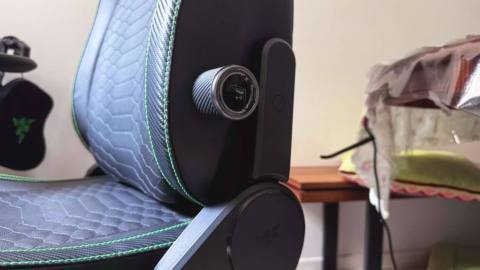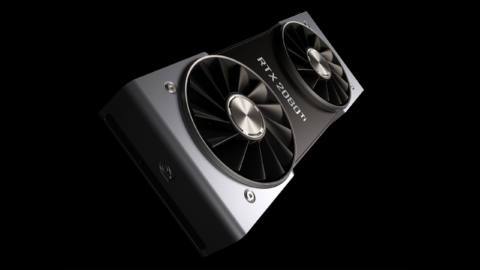I really wanted to love the new Razer Iskur V2. And why wouldn't I? It improves on practically everything from its predecessor—better materials, refined design, and a much more versatile lumbar system. Every complaint I had with the previous Razer Iskur, which, by the way, has been my main chair for the last three years, has been addressed.
And yet, I still don't love it for the sole reason that even with all the changes, updates, and tricks, it's not that much more comfortable than the chair it replaces. In fact, for the last few weeks that I've been using it, I've had far more soreness in my back.
Now, while it might just be that I am so attuned to my old chair's shape, or I sit like an idiot, that may just prove that Razer's tinkering didn't quite hit the mark.
The new Razer Iskur V2 retails for $649 and comes in two leather variants and one fabric one. I've got the poster boy leather one with green accents. I say leather, but it's not real leather. It's a synthetic Premium EPU-Grade leather, a step up from the PVC leather in the Iskur V1. It really doesn't feel more plush or materially better in any way compared, but time will tell as the Iskur V1 has survived a lot in my ownership, so I hope this one is just as durable.
Physically, the V2 looks a lot like the V1 went on a serious diet and lost a ton of weight to become a leaner, meaner, tush-seating machine. To start with, the V2 strays away from the tight, racing styling seat with much more flared and wide shoulder arches, and a widened seat base that drops the restrictive side bolsters that made sitting cross-legged in the V1 impossible for anyone but children and Hobbits.
Razer shrunk the main cushion for your bum, making it thinner than on the V1 but it feels about the same to my derriere. I did get a sore bum initially but over time, the memory foam is molding to me. Oh, and I'm now free to sit cross-legged from time to time thanks to the removal of the obnoxious racing seat side flanges. Though maybe that's why my back is playing up, too…
Razer has also increased the angle of recline, from 139° degrees to 152° which is helpful if you are prone to sleeping in your chair. That's something I'm not prone to do but in my limited testing, the Iskur V2 feels sturdy enough to support its rated body weights up to 136 kg.
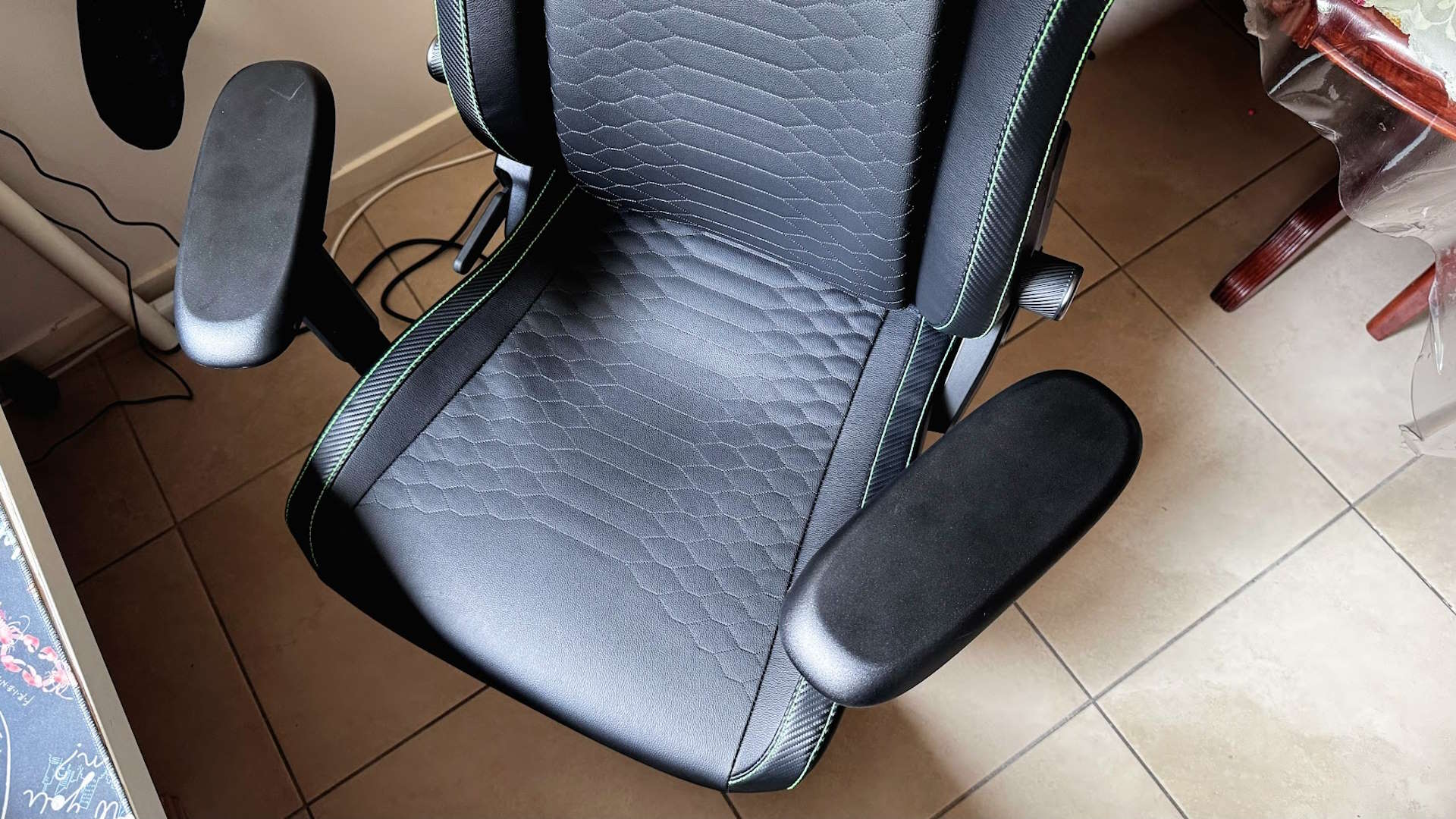
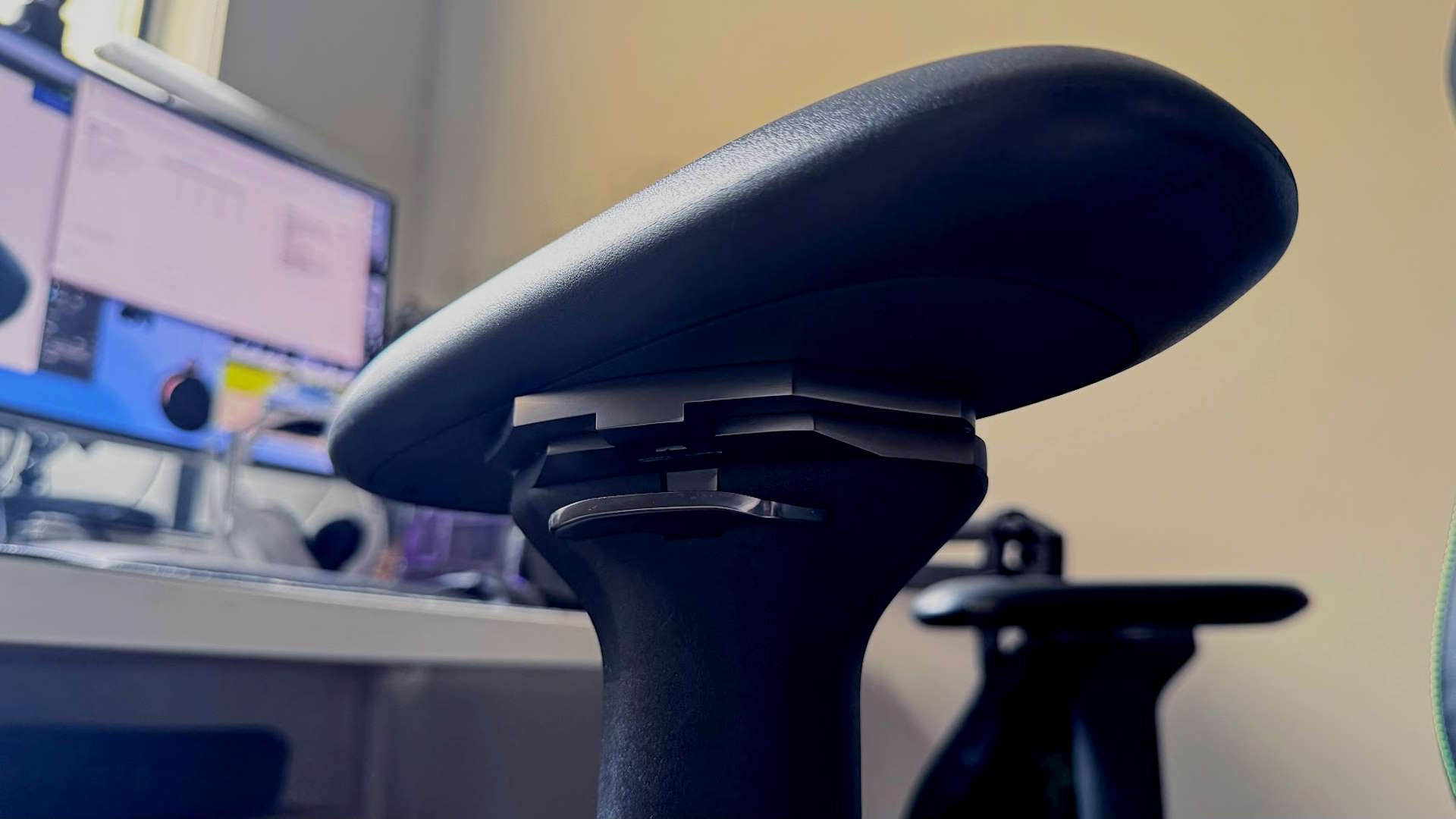
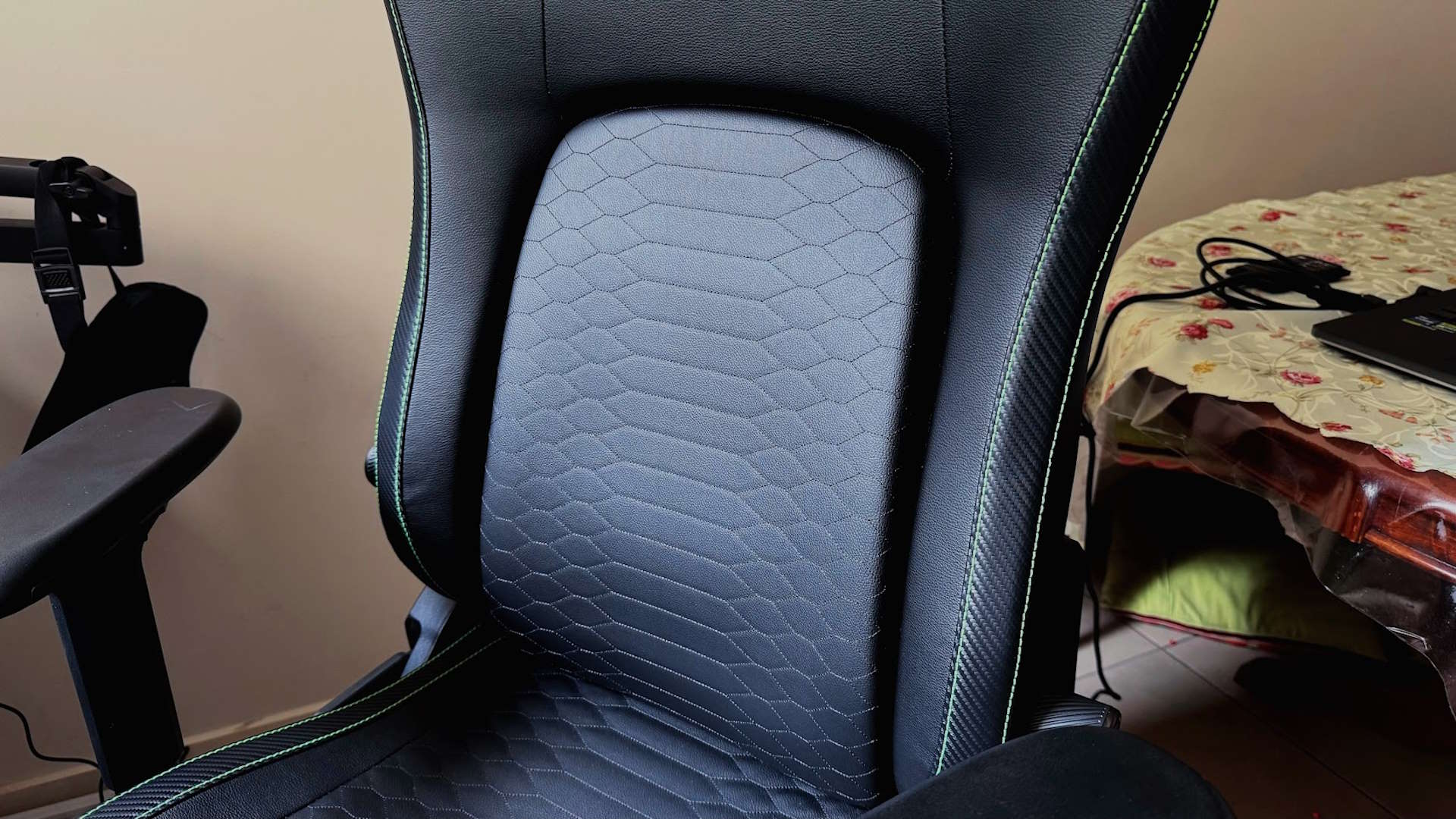
Also returning are the excellent 4D armrests that give such a varied range of motion for some pretty precise positioning. Height, rotation, and width all covered smoothly. As someone who generally uses 75% keyboards and controllers when gaming, I love the ability to rotate the armrest 50° inwards for better arm support.
The Iskur V2 has an adaptive and adjustable Lumbar system, which is the star of the show. Unlike the V1, which had a simple and limited one-dimensional lumbar design, the V2 features a new 6D system that addresses many of the issues with the previous model. The new design enables depth, height, and even swivel adjustments.
Instead of pushing a hard cushion into your lower back, the new Iskur lets you inflate or deflate the lumbar bulge using a rotary dial on the right side of the chair. You can also adjust the height position of the bulge with a secondary dial on the left of the chair. This is essential for finding the perfect seating position and arch of your back.
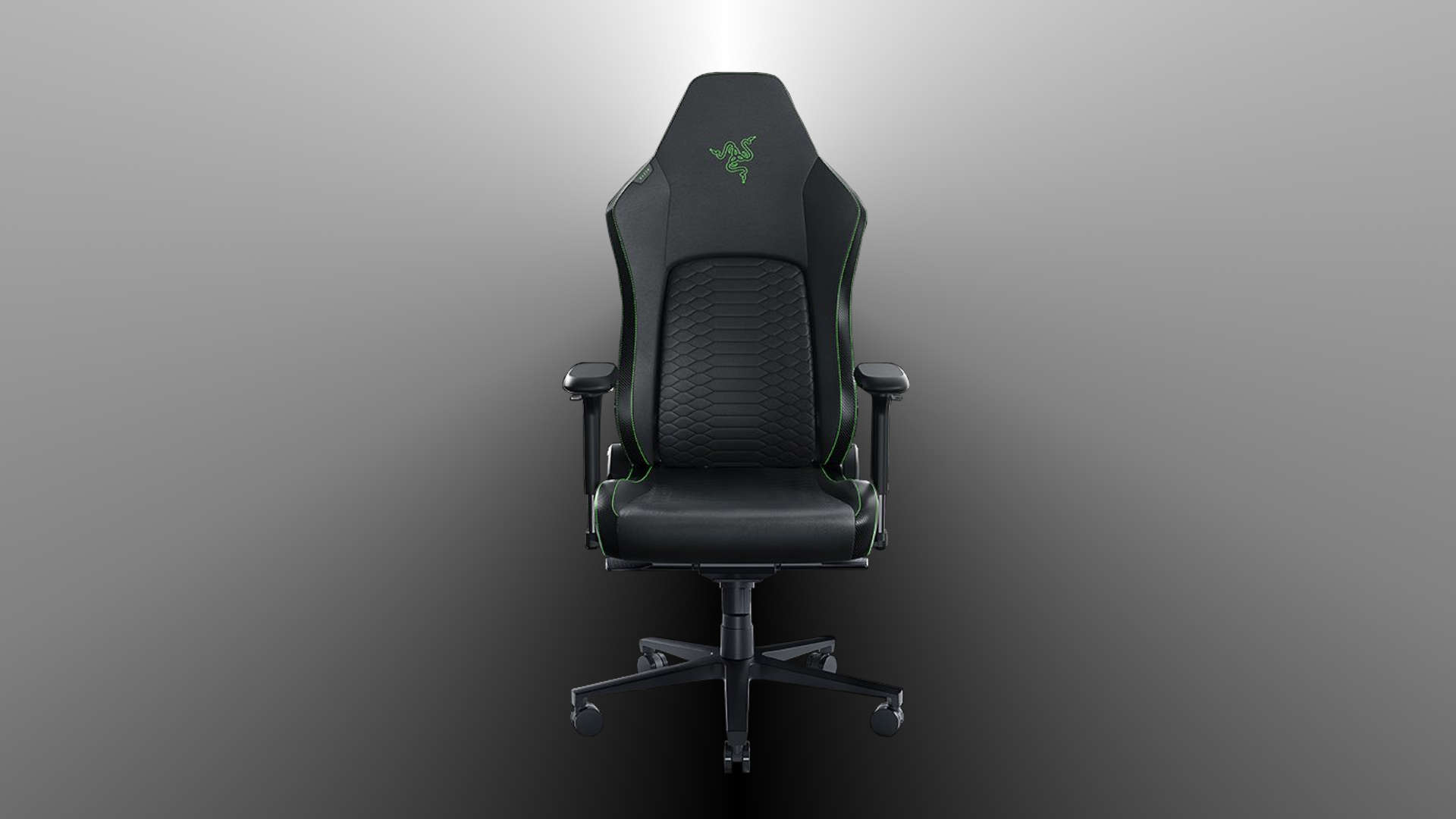
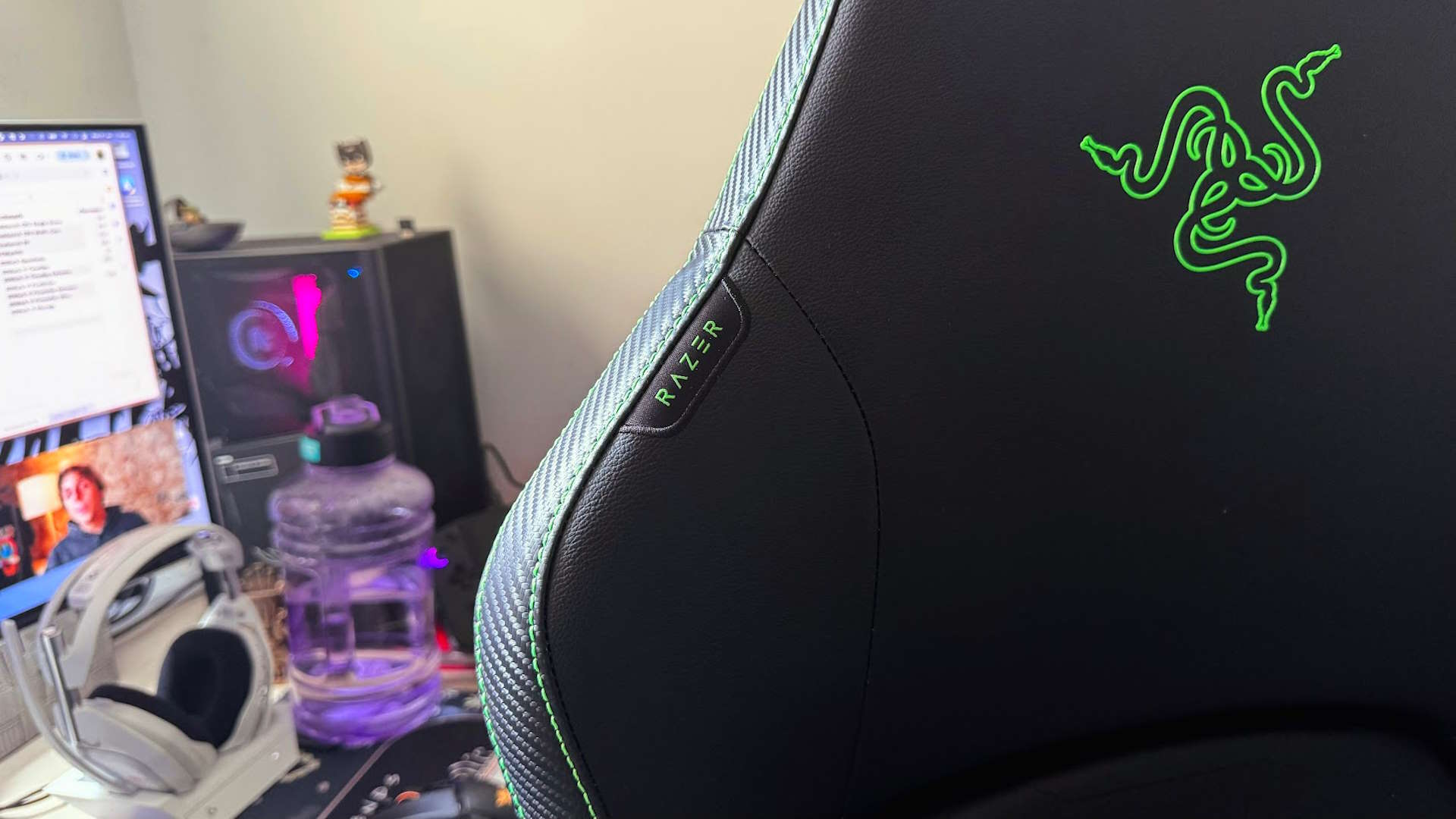
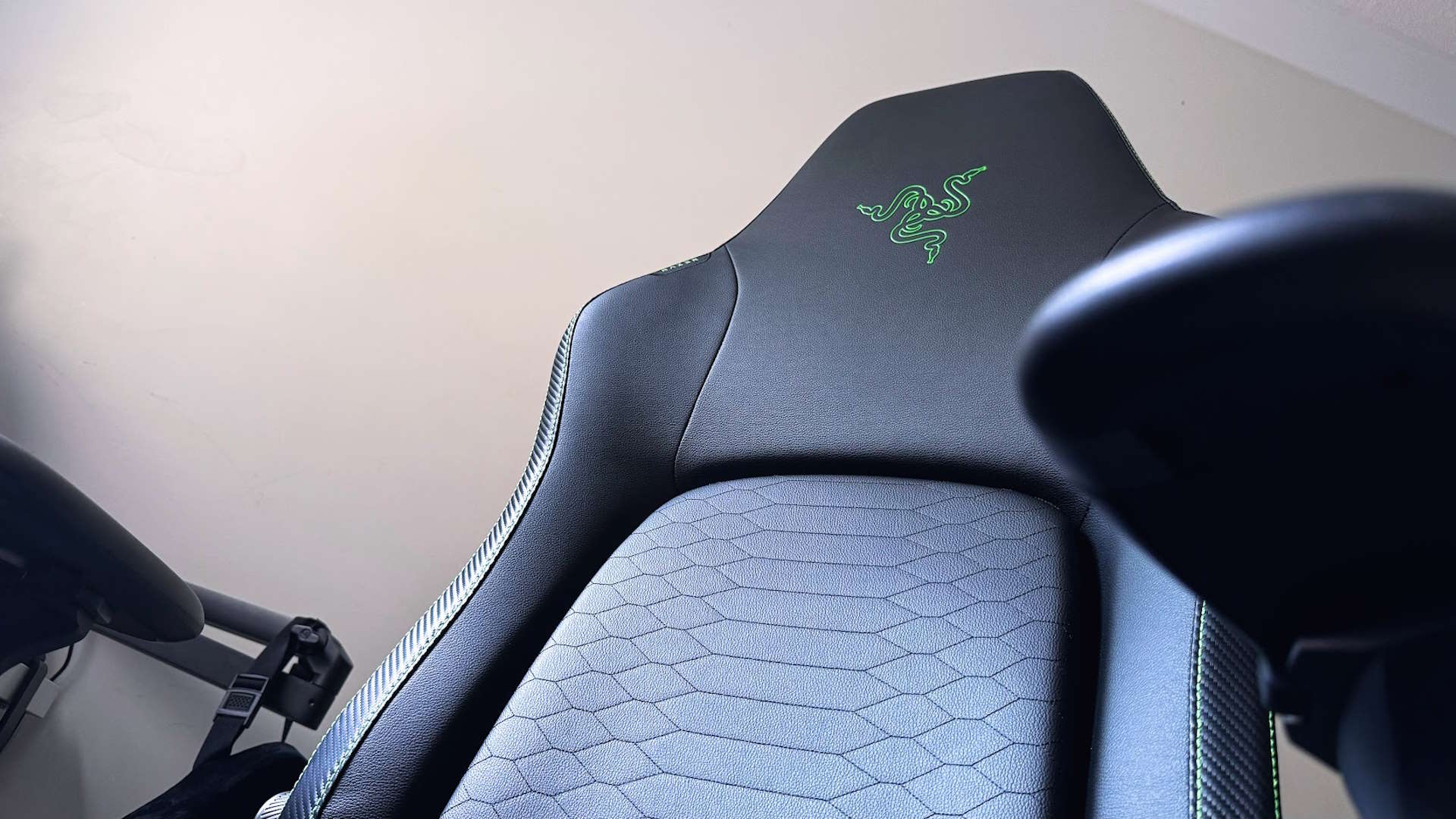
✅ You want a gaming chair with all the controls: You need to get used to having control over almost every aspect of its seating and don't mind learning how to sit in the chair because it's certainly not a sit-and-play affair.
✅ You want a good-looking chair: It's one of the better looking gaming chairs, so if looks are important to you—and you are all in on the Razer branding—then yeah.
❌ You are hoping for revolutionary comfort: This isn't some new kind of ergonomic chair that will spare you several trips to the chiropractor. The 6D lumbar is cool and all but overall, for me the chair is far too firm and unrelenting to be comfortably used for hours on end.
The old Iskur made it difficult to achieve a deep arch in your back without forcing you to sit further forward in the seat. This new lumbar system solves that problem. Moreover, the lumbar swivels as you naturally move about in the chair. Although it feels a little strange at first, it ensures that the lumbar support stays in place when you lean on either side, particularly if you have a dual-screen setup.
The Razer Iskur V2 is technically a better chair than the one it replaces—better lumbar design, materials and profile. So it's such a shame that even with the greater levels of control, for me it really isn't a more comfortable chair than my old V1. My lack of knowledge of proper sitting posture may be a contributing factor, but regardless, it shouldn't be that complicated, right?
During a recent event at CES 2024, Razer had a Posture doctor on hand to demonstrate proper sitting technique in the Iskur V2. Unfortunately, most people won't have access to this kind of assistance, which means they may not be getting the full benefits of the chair.
You're mileage will vary, but in the absence of Razer’s resident posture doctor, I’m not so keen to recommend this chair to anyone who just wants something they can easily plop down into and game all night. For a chair that seemingly offers the world, it doesn't give you much leeway in how you sit in it.

